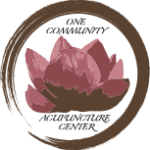
In a 2014 study published in the World Journal of Gastroenterology, researchers conducted a meta-analysis of six randomized, placebo-controlled, clinical trials and found acupuncture had a statistically significant, positive effect on IBS symptoms. The study found acupuncture was helpful in alleviating a variety of symptoms, including abdominal pain, stool state, and abdominal distention, among others.
Between 25 and 45 million people suffer from irritable bowel syndrome, IBS, in the United States. Symptoms of IBS vary from person to person, but IBS is commonly characterized by intestinal pain and either diarrhea or constipation. Symptoms also vary from moderate to severe, but either way, the discomfort needs to be managed long term.
The cause of IBS is not completely known, but one hypothesis suggests it has to do with a disruption of neurotransmission between the intestines and the central nervous system.
Along with diet and lifestyle changes to manage the symptoms, some people turn to medication for support. Systematic reviews of IBS medication have shown inconsistent success, and no one drug has been found to treat all the symptoms of IBS. In light of ineffective and expensive medications, many people have started turning to acupuncture in order to address the symptoms of IBS.
Digestive disturbances are often related to inflammation of some kind, which is one of the conditions acupuncture has been proven to address very well. There are also acupuncture points specifically related to metabolism, increasing gastrointestinal muscle contraction and relaxation, reducing gastric acid secretion, regulating large intestine function and balancing stomach acidity, all of which can support balanced digestive function and support patients with IBS.
Digestive disturbances are also often related to chronic stress in a person’s life. Many acupuncture points are related to reducing stress in the body.
Lastly, digestive disturbance is also linked to people’s diet and nutrient deficiencies in the body. Traditional Chinese Medicine, or TCM, is the medical umbrella under which acupuncture falls. TCM treatments are often a combination of acupuncture, herbal tonics and exercise or movement. Chinese herbs can balance out many nutrient-deficiencies a person might be experiencing that can exacerbate IBS. TCM is a holistic philosophy that incorporates symptom relief as well as lifestyle and diet considerations to develop a well-rounded, personalized treatment plan.
IBS can be a debilitating condition, but it doesn’t have to be. Acupuncture and Chinese herbs can be a great alternative for managing the symptoms. If you or a loved one struggles with IBS, contact a licenced acupuncturist in your area to learn how they may be able to help you find relief.
https://www.ncbi.nlm.nih.gov/pmc/articles/PMC3930986/












